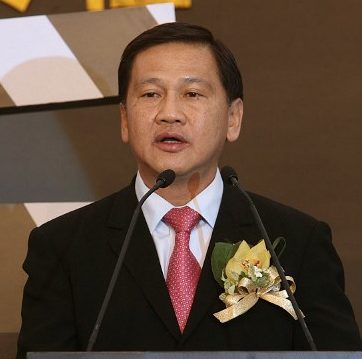There should rightly have been only one issue arising out of the Parti Liyani case. Has justice been served? But because it appears, in the court of raging public opinion, more like a Liew Mun Leong/PAP elite case, the jury may be out for some time to come.
Has justice been served – for the Indonesian maid, at least? Maybe in more ways than one. “The (High Court) judge’s judgment goes through the facts very carefully. It sets out what the break in the chain of evidence is, and in that way, it is good to see that justice is both blind and that justice has been delivered,” Law Minister K Shanmugam said. Sure.
And kudos to Anil Balchandani, the pro bono defence counsel who earned the Law Minister’s praise. “He did a thorough and good job of it. That is a lawyer’s job. To be thorough, to be clear, to put forward everything fairly to the court,” said Shanmugam. “Based on what I have heard, I think he ought to be commended.” So he should be.
Parti, 46, was sentenced to more than two years’ jail in March 2019 after being found guilty of four charges of stealing about S$34,000 worth of items from then Changi Airport Group chairman Liew Mun Leong’s family. She had her convictions overturned in the High Court on September 4, after her appeal was allowed. Four days later, she was given a discharge amounting to an acquittal for a fifth charge.
Justice Chan Seng Onn raised several reasons for Parti’s acquittal, including the “existence of an improper motive” by the Liew family, the break in chain of custody of evidence, and issues with the way the police had handled the case.
Mothership.sg rightly described the whole saga as a David-versus-Goliath battle. The result has been literally and truly remarkable. Defence got acquittal and, as a consequence, the fall of a very powerful member of the Singapore establishment.
Liew has stepped down as chairman of Changi Airport Group and Surbana Jurong. He has also resigned from his positions as senior international business adviser at Singapore investment company Temasek and as a board member of Temasek Foundation. Liew, 74, said on September 10 that he had decided to bring forward his retirement from these roles.
Hence, not only has justice been served. This case must also have given tremendous encouragement to others in similar situations to have greater faith in the system and to never give up. Of course, there were many what ifs. What if the maid had not been wanted to fight, prove her innocence and clear her name. What if there were no Anil Balchandani and no Chan Seng Onn. What if Parti had not got the help and support of people from the Humanitarian Organisation for Migration Economics (HOME).
Balchandani: “We were up against a very tenacious set of prosecutors, we also were up against a very prominent family and we didn’t have a, you know, robust defence.
“And what I mean by that is that we didn’t have a defence that was based on photographs that Parti had taken. In fact one of the downsides of our case is Parti as a person just never really took a lot of photographs of herself to identify, look I had these items, I bought these items.”
The awful reality of it all is that there may well be many other such cases which have gone unreported because domestic workers are a vulnerable group and more likely to suffer in silence. The publicity generated by Parti’s success will send a strong message to employers to treat their maids with proper respect and to protect and not bully them.
Meanwhile, the David-and-Goliath image has somehow been extrapolated into a people-versus-PAP cronies PR problem.
Not a small number of Singaporeans rightly or wrongly, fairly or unfairly – judging from reactions – see the likes of Liew Mun Leong as representative of an allegedly self-entitled, self-serving elite who seem to see themselves as untouchable. They regard the Parti case as not just an exception but more a symptom of a potential rot that those in power for too long cannot be expected to self-diagnose and self-correct.
“In my judgment, there is reason to believe that the Liew family, upon realising her unhappiness, took the pre-emptive first step to terminate her employment suddenly without giving her sufficient time to pack, in the hope that Ms Parti would not use the time to make a complaint to MOM,” said High Court Judge Chan.
“Once she made express her desire to complain to MOM after her sudden termination on Oct 28, 2016, the Liew family followed up with the police report to ensure her return would be prevented.”
To quote Shanmugam once again: “The judge’s comments, we take them very seriously. Something has gone wrong in the chain of events. We have to look at that, and deal with what went wrong.”
He could well have been describing the state of the Singapore establishment.
Tan Bah Bah, consulting editor of TheIndependent.Sg, is a former senior leader writer with The Straits Times. He was also managing editor of a local magazine publishing company.

